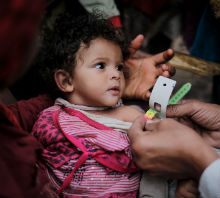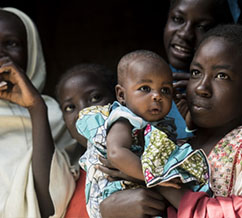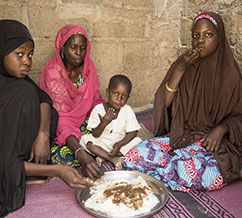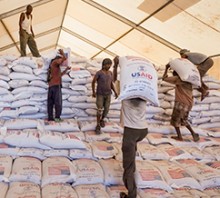Speeches Shim
Violence and insecurity continue to result in civilian casualties and hinder humanitarian operations in northeastern Nigeria. A December 2 person-borne improvised explosive device (PBIED) attack killed at least 13 civilians in Borno State’s town of Bui, while a November 28 attack on a team of health workers forced the suspension of vaccination activities in Borno’s Gubio Local Government Area (LGA).
On November 4, the Kingdom of Saudi Arabia (KSA) intercepted a missile launched by Al Houthi forces toward the KSA’s capital city of Riyadh, prompting the KSA to temporarily close all of Yemen’s air, land, and sea ports on November 6. Although the KSA officially reopened the ports in late November, the KSA-led Coalition has only cleared a limited number of commercial and humanitarian shipments to enter Yemen’s Red Sea ports. No fuel vessels have been allowed to enter Red Sea ports since November 6, resulting in sharp fuel price increases and forcing at least five major cities to shut down fuel-reliant water supply systems.
Persistent attacks against civilians are a major concern for humanitarian organizations. During the week of November 19, media reported that violence in Nigeria’s Adamawa State resulted in the deaths of 90 people, including an attack on November 21 in Adamawa’s town of Mubi that resulted in nearly 60 deaths, as well as an armed group attempt to gain control of Borno State’s Magumeri town that resulted in the deaths of at least three civilians on November 25.
Clashes among armed groups continue to endanger civilians and limit humanitarian access in South Sudan. On November 28, intercommunal violence in Jonglei State resulted in the death of at least 45 civilians, including six people working for two non-governmental organizations (NGOs), and injured nearly 20 other civilians, the UN reports.
Approximately 3.3 million people in Somalia are experiencing Crisis—IPC 3—or worse levels of acute food insecurity, the USAID-funded Famine Early Warning Systems Network (FEWS NET) reported in November.4 FEWS NET and the USAID-supported Somalia Food Security and Nutrition Analysis Unit (FSNAU) caution that parts of Somalia will remain at risk of Famine—IPC 5—through at least May 2018. Households across Somalia have reduced access to food and income following three consecutive poor rainy seasons, which resulted in below-average agricultural production and large-scale livestock losses, in addition to ongoing conflict.





Comment
Make a general inquiry or suggest an improvement.